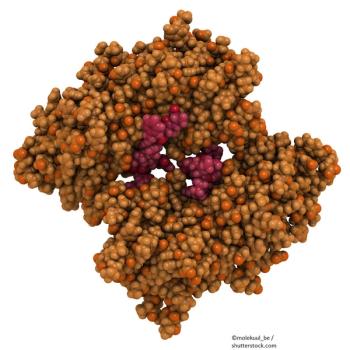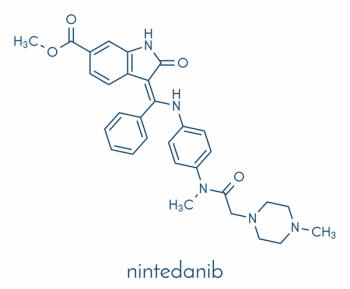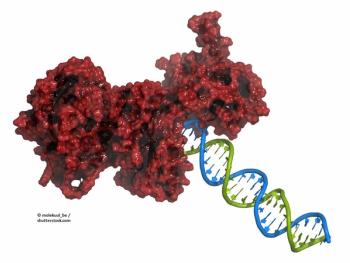
The MD Anderson Cancer Center expert spoke about the disconnect in women who are at risk for ovarian cancer to actually receive genetic counseling.

Your AI-Trained Oncology Knowledge Connection!


The MD Anderson Cancer Center expert spoke about the disconnect in women who are at risk for ovarian cancer to actually receive genetic counseling.

A study presented at the 2020 ASCO Scientific Program combining mirvetuximab soravtansine with bevacizumab to treat platinum-agnostic ovarian cancer demonstrated an encouraging overall response rate and tolerability profile regardless of platinum status.

Treatment with olaparib in the maintenance setting extended overall survival by more than a year in women with platinum-sensitive relapsed ovarian cancer with BRCA1/2 mutations.

An analysis of the phase III SOLO1 trial examined safety signals with olaparib maintenance therapy for women with newly diagnosed advanced ovarian cancer and a BRCA mutation.

A phase II trial showed that the addition of nintedanib to neoadjuvant chemotherapy did not benefit patients with advanced epithelial ovarian cancer.

Researchers analyzed recurrence and survival outcomes for clear cell ovarian carcinoma in the JGOG3017/GCIG trial.

Researchers tested maintenance therapy with rucaparib in a phase III trial of patients with recurrent epithelial ovarian cancer who experienced response to platinum-based chemotherapy.

This FDA confirmatory phase III study evaluated olaparib vs treatment of physician’s choice in BRCA-mutated, platinum-sensitive relapsed ovarian cancer.

Data from a phase II study were presented at ASCO 2019, focusing on responses among women with BRCA wild-type ovarian cancer to olaparib.

The EWOC-1 trial looked at single-agent carboplatin in vulnerable, elderly patients with stage III/IV epithelial ovarian cancer vs weekly or every 3 weeks carboplatin/paclitaxel.

The phase II AVANOVA trial examined PFS in advanced ovarian cancer patients who received a PARP inhibitor plus bevacizumab.

In this study from Johns Hopkins, it was found that women with ovarian cancer had better outcomes after the implementation of the Affordable Care Act.

Secondary cytoreductive surgery was not associated with improvement in either OS or PFS in patients with platinum-sensitive recurrent ovarian cancer.

Despite previously reported progression-free survival improvements with cediranib, results from the ICON6 trial failed to show a statistically significant improvement in overall survival.

As part of our coverage of the 2017 ASCO Annual Meeting, we discuss homologous recombination deficiency in ovarian cancer and PARP inhibitors.

Systematic lymphadenectomy in patients with advanced ovarian cancer and complete resection does not improve progression-free or overall survival, and should be omitted, according to results of a new study.

Adding bevacizumab to neoadjuvant chemotherapy did not improve complete macroscopic response rate or progression-free survival in women with ovarian cancer.

Platinum-sensitive ovarian cancer patients with a positive predictive AGO score who undergo a secondary debulking surgery after relapse on platinum chemotherapy experience longer progression-free survival.

Despite toxicity, olaparib maintenance therapy is associated with improved patient-reported symptoms outcomes and improved quality-adjusted progression-free survival among patients with germline BRCA mutation-positive, platinum-sensitive relapsed serious ovarian cancer.

Researchers were able to molecularly classify endometrial cancers with distinct survival differences using a new classification tool called ProMisE that uses clinically applicable methods.

A concurrent chemotherapy and radiotherapy regimen with cisplatin and paclitaxel yielded a good response rate and strong long-term survival outcomes in patients with locally advanced or recurrent cervical cancer.

In this video Dr. Odunsi discusses a new study that found that higher T-cell diversity in ovarian cancer is associated with poor overall survival.

A live attenuated bioengineered bacteria-vectored vaccine immunotherapy is well tolerated and appears to be associated with promising overall survival among women with persistent/recurrent metastatic cervical cancer.

Despite hematologic toxicities and port-related adverse events, IP carboplatin plus IV dose-dense paclitaxel appears to be effective in patients with suboptimally debulked epithelial ovarian or primary peritoneal carcinoma.

Pembrolizumab is well-tolerated and shows promising antitumor activity and early survival rates among patients with PD-L1–positive cervical squamous cell cancer, according to preliminary results of the KEYNOTE-028 trial.

Extending platinum-free interval with pegylated liposomal doxorubicin, topotecan, or gemcitabine does not improve overall survival among patients with recurrent ovarian cancer.

Baseline quality of life measures predict early cessation of chemotherapy and overall survival in women with platinum-resistant/refractory, recurrent ovarian cancer.

Adding metformin to a combination of everolimus plus letrozole for women with advanced or recurrent endometrioid endometrial cancer might offer clinical benefits.

Hormone maintenance therapy is associated with better survival than post-treatment surveillance for women with low-grade serous carcinoma of the ovary or peritoneum.

Among women previously treated with neoadjuvant chemotherapy followed by debulking surgery for advanced epithelial ovarian cancer, adding intraperitoneal to intravenous administration of postsurgical chemotherapy appears to be associated with a lower rate of disease progression.